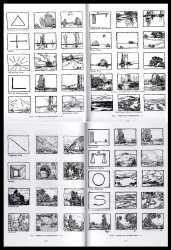>>4064358You can think of composition rules as descriptions of arrangements that generally work, or as relative measurements that give a pleasing result. So "rule" like in "ruler" and not like in "rules and regulations".
Once you understand why these work, you can see where you don't need to always follow them perfectly and how you can achieve a different result whether you follow them perfectly or don't. Even then, a composition doesn't need to fall into one category or the other, and different rules can come together in the same frame and still result in something usable.
These are not as concrete as a lot of people want to believe they are. That said, since they're descriptions of arrangements that generally work, a lot of your compositions will probably fall into one category or another.
In short, it's not as important to know all of the rules and apply them rigidly as it is to understand why these rules come up so frequently and in what situations
I hope this makes good sense to you and helps

